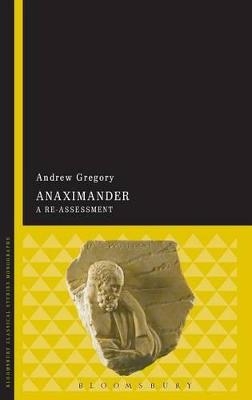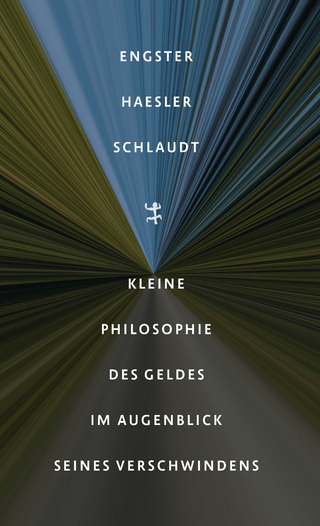
Anaximander
A Re-assessment
Seiten
2016
Bloomsbury Academic (Verlag)
978-1-4725-0779-2 (ISBN)
Bloomsbury Academic (Verlag)
978-1-4725-0779-2 (ISBN)
Anaximander, the sixth-century BCE philosopher of Miletus, is often credited as being the instigator of both science and philosophy. The first recorded philosopher to posit the idea of the boundless cosmos, he was also the first to attempt to explain the origins of the world and humankind in rational terms. Anaximander's philosophy encompasses theories of justice, cosmogony, geometry, cosmology, zoology and meteorology.
Anaximander: A Re-assessment draws together these wide-ranging threads into a single, coherent picture of the man, his worldview and his legacy to the history of thought. Arguing that Anaximander's statements are both apodeictic and based on observation of the world around him, Andrew Gregory examines how Anaximander's theories can all be construed in such a way that they are consistent with and supportive of each other. This includes the tenet that the philosophical elements of Anaximander's thought (his account of the apeiron, the extant fragment) can be harmonised to support his views on the natural world. The work further explores how these theories relate to early Greek thought and in particular conceptions of theogony and meterology in Hesiod and Homer.
Anaximander: A Re-assessment draws together these wide-ranging threads into a single, coherent picture of the man, his worldview and his legacy to the history of thought. Arguing that Anaximander's statements are both apodeictic and based on observation of the world around him, Andrew Gregory examines how Anaximander's theories can all be construed in such a way that they are consistent with and supportive of each other. This includes the tenet that the philosophical elements of Anaximander's thought (his account of the apeiron, the extant fragment) can be harmonised to support his views on the natural world. The work further explores how these theories relate to early Greek thought and in particular conceptions of theogony and meterology in Hesiod and Homer.
Andrew Gregory is Professor of History and Philosophy of Science, University College London, UK. He is the author of many books on the science of the ancient world, including Plato's Philosophy of Science (2000), Eureka! The Birth of Science (2001) and Ancient Greek Cosmogony (2008).
Prologue
Introduction
1. Anaximander and Historiography
2. Anaximander’s Zoogony
3. Anaximander and Meteorology
4. The Extant Fragment
5. The Apeiron
6. Cosmogony and Steering
7. Anaximander: One Cosmos or Many?
8. The Stability of the Cosmos
9. Anaximander's Cosmology and Astronomy
10. Anaximander’s Numbers
Conclusion
Bibliography
Index
| Erscheint lt. Verlag | 25.2.2016 |
|---|---|
| Verlagsort | London |
| Sprache | englisch |
| Maße | 156 x 234 mm |
| Gewicht | 617 g |
| Themenwelt | Geisteswissenschaften ► Philosophie ► Metaphysik / Ontologie |
| Geisteswissenschaften ► Philosophie ► Philosophie Altertum / Antike | |
| ISBN-10 | 1-4725-0779-7 / 1472507797 |
| ISBN-13 | 978-1-4725-0779-2 / 9781472507792 |
| Zustand | Neuware |
| Haben Sie eine Frage zum Produkt? |
Mehr entdecken
aus dem Bereich
aus dem Bereich
Buch | Hardcover (2024)
Matthes & Seitz (Verlag)
28,00 €
Über konstruktivistisches Denken in der Theologie
Buch | Softcover (2024)
Verlag Herder
58,00 €


